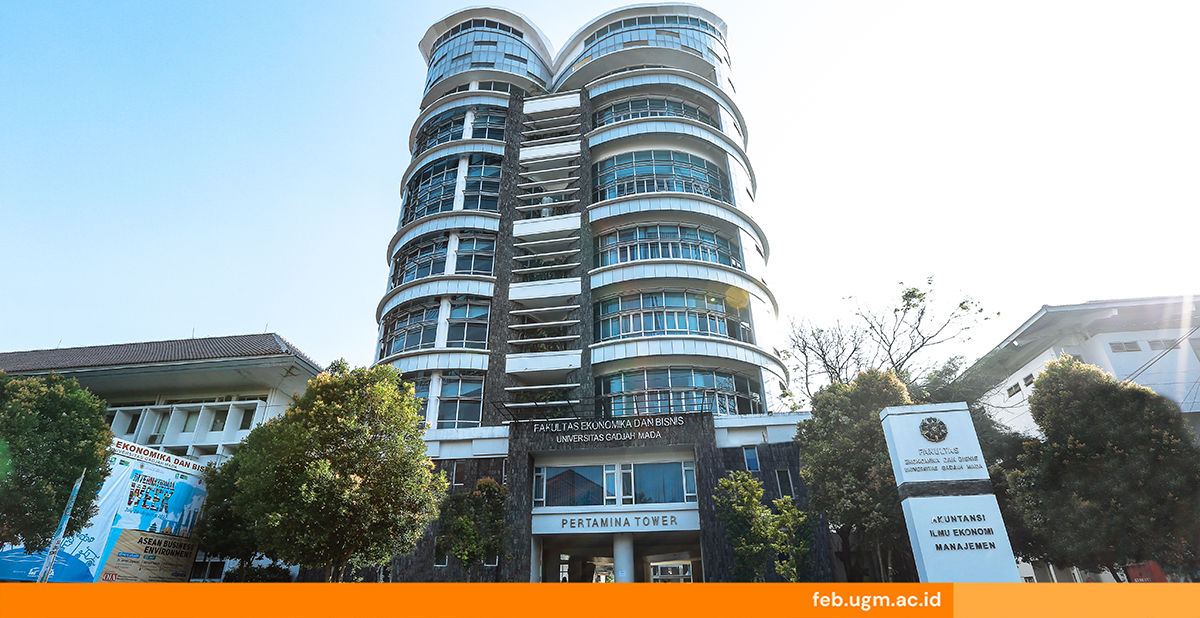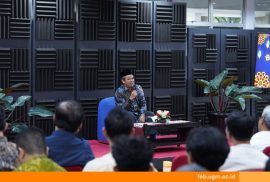
Efforts to accelerate digital transformation at the district/city local government level face various challenges. Although the Electronic-Based Government System (SPBE) regulation has been in effect since 2018, its implementation has not been optimal due to gaps in ICT infrastructure, inconsistencies between central and regional policies, minimal use of big data, and uneven digital literacy among the public.
In response to these challenges, the Faculty of Economics and Business, Gadjah Mada University (FEB UGM), through the Centre for Information Systems Studies (PKSI), is once again holding a National Seminar and Award Ceremony for the Gadjah Mada Digital Transformation Governance Index (GM-DTGI) for District/City Local Governments in 2025. This event, which will be held on 4 September 2025 at the Sukadji Ranuwihardjo Auditorium, Master of Management FEB UGM, will be a momentum for the launch of the latest ranking results as well as a strategic forum for local governments, academics, industry, and the central government to strengthen cross-sector collaboration in accelerating digital transformation.
Previously in 2024, FEB UGM, through PKSI, launched GM-DTGI to facilitate the assessment of digital transformation performance in regency/city local governments. The Head of Research and Development for GM-DTGI, Prof. Syaiful Ali, M.I.S., Ph.D., Ak., CA., explained that GM-DTGI is an innovative index designed to assess digital transformation performance in district/city local governments. FEB UGM developed this instrument to evaluate the implementation of the Electronic-Based Government System (SPBE) and other digital innovations implemented by local governments throughout Indonesia based on seven main pillars. The seven pillars are Governance and Leadership; Regulations and Policies; Public Administration Reform and Change Management; Data Governance; Digital Ecosystem; User-Based Platform Design; and Cyber Security and System Resilience. In 2025, this index will evaluate 508 local governments throughout Indonesia through a data-based assessment process verified directly with the relevant local governments.
Prof. Ali hopes that the update of indicators in 2025 will provide a more accurate evaluation while encouraging regional commitment to sustainable digital governance. Through this ranking, FEB UGM hopes that local governments will be further encouraged to accelerate innovation and collaboration to realise effective, inclusive, and adaptive public services in line with technological developments.
This event featured the Deputy Minister of Communication and Digital Affairs of the Republic of Indonesia, Mr Nezar Patria, S.Fil., M.Sc., M.B.A., who delivered a keynote speech on ‘Optimising Big Data in Local Government Governance to Support the Acceleration of Digital Transformation’. In addition, two panel discussion sessions brought together representatives from the central government, local governments, and industry to share best practices, big data implementation strategies, and technology-based public service innovations.
Furthermore, Prof. Ali said that this seminar would provide participants with a deeper understanding of the GM-DTGI rankings and the state of digital transformation in district/city local governments throughout Indonesia. Furthermore, this activity is also expected to become an interactive discussion forum to discuss the challenges and opportunities in implementing digital transformation in various regions, provide a space for local governments to provide feedback and input related to the ranking instruments used in the index, and increase the awareness and commitment of local governments in optimising digital transformation to improve public service performance and governance.
Reportage by: Kurnia Ekaptiningrum
Sustainable Development Goals









